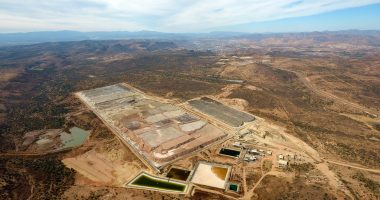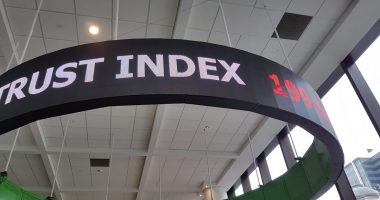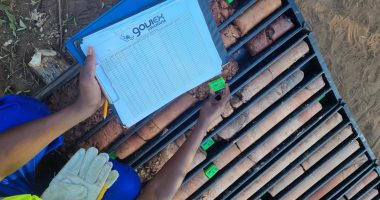Environmental, Social, and Governance, or ESG, is no longer just a convenient bonus when it comes to the metals & mining industry.
Health and safety, social responsibility, and leadership in environmental stewardship are corporate cornerstones in sustainable mineral development.
Avalon Advanced Materials Inc. (TSX.AVL, OTC: AVLNF, Forum) is a Canadian mineral development company specializing in materials for clean technology. The company’s extensive experience with critical minerals and commitment to sustainability and E-S-G puts it in a unique position to utilize its resources and expertise in extraction techniques to establish new critical minerals supply chains in North America. Avalon has four advanced projects providing investors with exposure to lithium, tin, indium, rare earths, tantalum, and cesium.
The Market Herald’s Dave Jackson was joined, once again, by company President and CEO Don Bubar to get our investors caught up on this intriguing, diversified critical minerals play.
TRANSCRIPT BELOW:
TMH1: Don, big news in early April – Avalon’s announcement of a partnership agreement to establish Ontario’s first regional lithium battery materials refinery in Thunder Bay. Can you unpack the benefits of this deal?
DB: Well, basically it was something that we’d been pointing out for many years was important to establish was the midstream processing capacity to allow new producers of the lithium mineral concentrates to be able to access a facility that could turn them into the battery material product USING lithium hydroxide and that was missing But now we’ve got basically so much interest in creating these lithium battery material supply chains here that there’s quite a lot of support from government now to make sure that we can get it started.
All we needed was basically an investing partner to help us access capital to get it going And that was the agreement we reached with Sr and that’s going to get the ball rolling for us here very soon to get the facility established as a regional facility in Thunder Bay to not only serve our needs, but also any other aspiring new producer of lithium mineral concentrates in Northwestern Ontario. I always point out there are many, many, many lithium pegmatites in Northwestern Ontario that are not short supply, just needed the midstream processing capacity and that’s what we’re going to get started here soon.
TMH2: And, as a follow-up, why is this North American location particularly so important?
DB: Well, Thunder Bay is Basically a regional transportation hub with great infrastructure and so it makes it easy to access international markets because of its presence on the Lake Superior and St. Lawrence Seaway to access markets in the Northeastern US, as well as Ontario and even in Europe.
TMH3: You’ve also recently reported that the company has entered into a $3-million-dollar convertible security funding agreement with Lind Global Fund. What should investors glean from this raise?
DB: Well, basically we just needed a top up on working capital as we got lots of things to do now and we’ve worked with Lynn Partners in the past and they’ve been very good supportive investors in our company. So, this was the quickest, easiest solution on accessing a sufficient working capital to allow us to keep moving everything forward in the short term.
TMH4: How exactly do critical minerals supply chains work and what’s pivotal to getting lithium battery materials quickly, efficiently, and cost-effectively to market and how is Avalon positioned to achieve it?
DB: Well, it’s always been about finding the markets for the product and historically there’s never been markets for lithium minerals or battery materials in Canada and very little in the US. So that was always the key thing to get established was markets and buyers for the product because you also need to know the specs of what they’re looking for so you can effectively define your process to meet the needs of the end user. So it’s a very, very different business than traditional mining, just producing bulk exchange, traded commodities. It’s more like as I always say, it’s more like an advanced manufacturing business to produce these to meet the requirements of the end users.
TMH5: What separates Avalon from the competition and makes your critical minerals business model unique?
DB: Well, basically we’ve been looking at lithium as an opportunity for 25 years now when we first acquired our separation rapids lithium project, just north of Kenora Ontario, maybe we were a bit early then, but we knew there would be an opportunity sometime down the road. We didn’t think it would take 25 years but here we are, and we originally got interested in it because the mineral that we have there, the lithium mineral pegmatite is one that’s always been used as, especially mineral in high strength glass ceramic products and that’s still a market opportunity for us to serve going forward too. You don’t hear much about it but that’s growing in demand now too and they prefer a high purity, lithium aluminum silicate because the aluminum silica are also ingredients in the glass formulation and this is the easiest way to introduce it into the batch, without introducing any impurities that can contaminate it and that’s a lot of innovation and a lot of growth and demand there too.
TMH6: We talked about small-scale lithium production last time we met up. What’s the key in getting the Separation Rapids Lithium Project – your most advanced project – ramped up to a large-scale production operation?
DB: Well, the next step is basically just to finalize our feasibility study but in the interim, while we get going towards our larger scale production to serve the lithium battery materials refinery, we want to start producing trial quantities of the lithium mineral concentrates for the many glass ceramic manufacturers that have expressed interest in that product and confirm that we can meet their needs on the specifications and that’ll get us started at a modest scale, which was our model all along and then we can scale up once we’ve got the battery materials refinery ready to receive concentrates too.
TMH7: Your corporate deck states that “historical mines that once produced a traditional commodity offer near-term critical minerals production opportunities.” How can the company generate near-term revenue in a circular economy?
DB: Yeah, well, that’s something we’ve been kind of advocating for quite a long time, is that a lot of closed mine sites need to be looked at now as opportunities because there’s so many examples of mine sites developed decades ago for one traditional commodity where the resource contained lots of other elements that had no value or interest then but do today. So now if mining’s already been done, then it’s just about coming up with an efficient extraction process to reprocess some of those waste and recover the valuable, rare elements in them and there are opportunities to do that for lithium and including our East Kemptville project in Southwestern Nova Scotia.
TMH8: Don, your stock was selling at about 13 cents per share at press time. What can you tell our investor audience regarding the current valuation of your stock and why they should view this a good opportunity right now?
DB: If you compare Avalon to other lithium equities, we’re quite undervalued compared to most of them and why is that? Couple of factors. One, we did all the original exploration work over 20 years ago. So we haven’t had a whole lot of newsflow of exploration results that your typical early stage exploration company has, having an advanced project and trying to do what we’ve been doing means a lot of it’s under confidentiality agreements that don’t allow us to make a whole lot of disclosure on it and the other factor is that we don’t have the word lithium in our name and most investors in the US and internationally still think of Avalon primarily as a rare earth equity because of our history in the rare earth sector and having done all the work in lithium well before that, it’s been a matter now of kind of getting the investing public up to speed on how we actually have a very advanced lithium project that’s pretty well ready to go. So that’s what I’m going to be doing for next little while.
TMH9: What’s the long-term strategy for the company moving forward and what should retail, private equity, and institutional investors be looking out for?
DB: Well, we see this as a growth business and being able to increase production over time and start to recover other critical minerals. There’s a resource that we have is Separation Rapids and the other one we have in Northern Ontario is called Lilypad (and) is also enriched in cesium and pantolum. Two other rare elements that we can now look at recovering and it’s a matter now of helping people understand what the applications are to start innovating the products that can use them. They’re in high demand internationally and now is the time for us to start encouraging more innovation on the products that use these rare elements right here in Canada.
TMH10: And finally, Don, if there’s anything I’ve overlooked please feel free to elaborate.
DB: Well, I’d like to just expand on that a bit further is that it’s now time for universities to get more involved in R&D on how to (a) efficiently recover these critical minerals and (b) start to encourage more R&D on how to use them in new technologies and innovation there and I’ve actually got good dialogue going with Lakehead University and Thunder Bay who are now quite interested in getting involved in that makes total sense for them be given their location close to a lot of these critical minerals resources.
For regular updates, visit avalonadvancedmaterials.com.
FULL DISCLOSURE: This is a paid article produced by The Market Herald.



